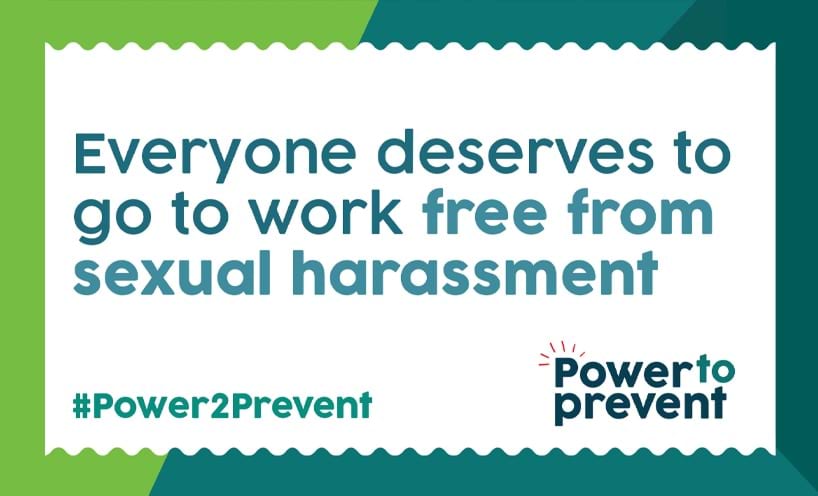‘My manager would make lewd jokes, call me by sexual nicknames and discuss his sexual fantasies with me at work. He would also sit very close to me and other female staff. It was common knowledge in the workplace that he regularly behaved in this way to other staff, but it was never addressed' – Fiona.
Over the past decade, we have advocated for long-term reform to make workplaces safer.
The fifth national survey on sexual harassment in Australian workplaces found that one in three workers reported experiencing workplace sexual harassment in the last five years.
Our Equality Law Program provides advice and representation to workers impacted by sexual harassment.
Over the past 10 years we have provided over 12,500 legal advice sessions and run over 1000 case files on discrimination matters. But during that time only four of our clients proceeded to hearing and final judgment.
Removing barriers to help victim survivors of sexual harassment access justice plays an important role in shaping broader cultural and community change.
Latest news
Stronger laws to protect workers
‘We frequently hear from clients that the sexual harassment was said in a joking manner and they laughed along because they didn’t know what else to do, or the just felt so uncomfortable.’ -Melanie Schleiger, Specialist Advisor, Strategic Litigation
Positive duty on employers to prevent sexual harassment
Changes to the law as a result of recommendations from the 2020 Respect@Work: Sexual Harassment National Inquiry Report have taken major steps toward both addressing and preventing workplace sexual harassment.
The Anti-Discrimination and Human Rights Legislation Amendment (Respect at Work) Bill 2022 implemented many legislative recommendations of the Respect@Work report. Additional funding was also provided for legal services to support workers experiencing sexual harassment.
A key change is the introduction of a new positive duty on employers to prevent sexual harassment. This means they must take reasonable and proportionate measures to eliminate discriminatory conduct from the workplace.
This represents a significant shift away from the complaints-based model of viewing and dealing with sexual harassment at work. Now employers must continuously evaluate and act to ensure they are meeting their responsibilities.
The legislative changes also give the Australian Human Rights Commission greater powers to monitor for compliance and investigate issues of systemic unlawful discrimination.
Victim survivors of sexual harassment won’t have to pay their employer’s costs if they lose
It is now easier for victim survivors of workplace sexual harassment to bring proceedings to court, with costs protection implemented from October 2024.
The Australian Human Rights Commission Amendment (Costs Protection) Bill 2023 implemented the final outstanding recommendation for legislative reform from the landmark Respect@Work report.
This law means that individuals who bring claims of discrimination and sexual harassment can recoup their legal costs if they are successful. They are also protected from having to pay legal costs if they are unsuccessful, except in limited circumstances.
The sexual harassment law reform journey
June 2018
- Australia’s Sex Discrimination Commissioner, Kate Jenkins, announces a national inquiry into sexual harassment in Australian workplaces.
Late 2018 / early 2019
- The Power to Prevent coalition is formed to advocate for law reform to address and prevent sexual harassment in Australian workplaces.
February 2019
- The Power to Prevent coalition releases a joint statement on the urgent actions needed to prevent sexual harassment.
March 2020
- The Australian Human Rights Commission releases the Respect@Workreport of the National Inquiry into Sexual Harassment.
July 2021
- We make a submission and give evidence to Senate inquiries into the Sex Discrimination and Fair Work (Respect at Work) Amendment Bill.
March – April 2022
- We participate in the Attorney General’s Department Respect@Work Roundtable and make a submission on the remaining legislative recommendations.
- The Power to Prevent coalition releases a joint statement on the urgent law reform needed to prevent sexual harassment at work.
August – October 2022
- We make submissions and give evidence to the Senate inquiry into the Human Rights Legislation Amendment (Respect at Work) Bill 2022.
November 2022
- The Anti-Discrimination and Human Rights Legislation Amendment (Respect at Work) Bill passes the Federal Parliament, implementing all outstanding legislative recommendations of the Respect@Work report.
December 2022
- New positive duty laws commence requiring employers to act to prevent sex discrimination and harassment in their workplaces before it happens.
April 2023
- The Power to Prevent coalition releases a joint statement, calling on the Australian Government to adopt an equal access costs model for all discrimination matters.
November 2023
- The Australian Human Rights Commission Amendment (Costs Protection) Bill 2023 is introduced into parliament.
December 2023
- The Australian Human Rights Commission has new powers to investigate and enforce compliance with the positive duty.
- The Power to Prevent coalition releases a joint statement welcoming the Australian Human Rights Commission Amendment (Costs Protection) Bill 2023.
January 2024
- We give evidence to the Senate inquiry into the Australia Human Rights Commission Amendment (Costs Protections) Bill.
September 2024
- The Australian Human Rights Commission Amendment (Costs Protection) Bill 2023 passes. The amendment makes it easier for victim survivors of workplace sexual harassment to bring a legal case.
More information
Read the Power to Prevent coalition joint statement on National Legal Aid's website.
Learn more about our specialist sexual harassment and discrimination law services.
Learn more about sexual harassment and what you can do about it.
For more information about our work, you can contact us at equalitylaw@vla.vic.gov.au or on (03) 9269 0416.
Updated


